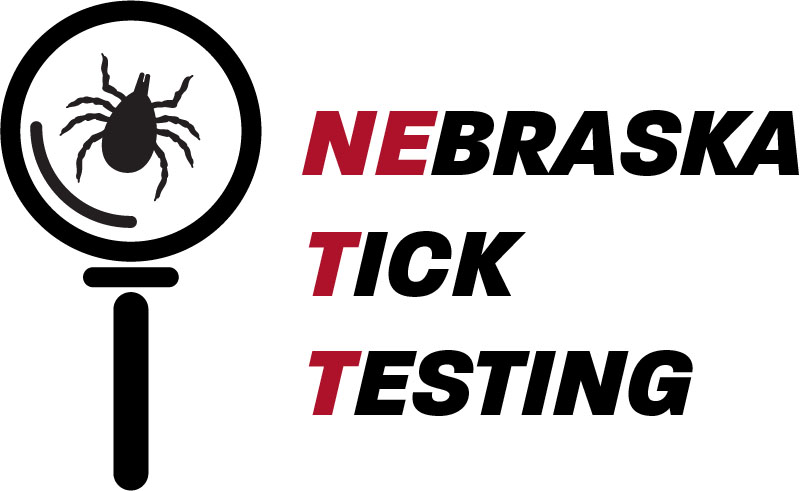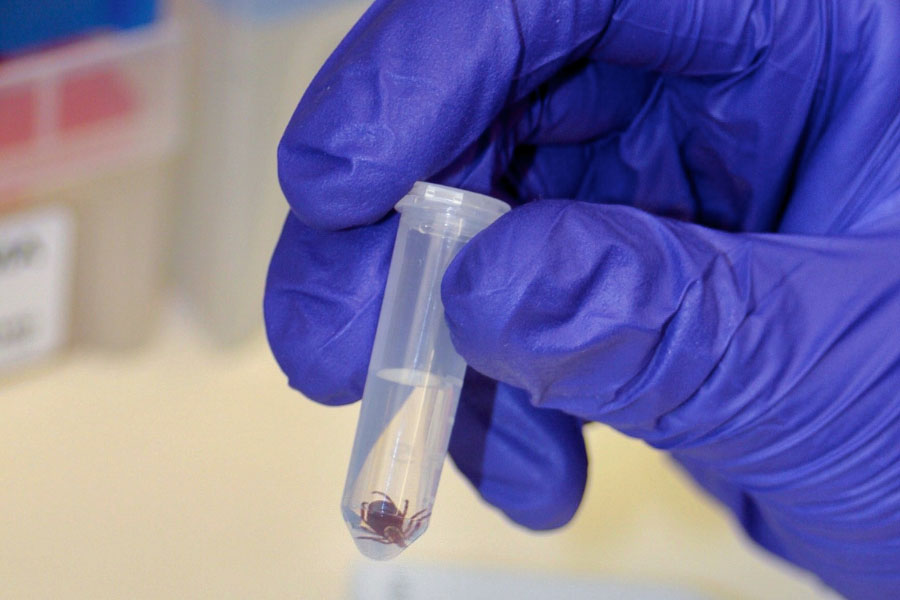Beginning May 1, UNMC will unveil the Nebraska Tick Testing (NeTT) Program to allow members of the public to send ticks to the university for testing and surveillance.

The goal, said Shaun Cross, PhD, assistant professor in the UNMC College of Public Health, will be to test for any tick-borne pathogens to which someone might have been exposed. At the same time, NeTT will also build up a database of the types of ticks and the prevalence of particular tick-borne pathogens in various parts of the state.
There’s a public health component to this statewide effort.
“There’s movement of new ticks into Nebraska,” Dr. Cross said, pointing to an influx of deer ticks to the eastern part of the state over the past few years. “The cases of tickborne diseases are rapidly growing as well. This will empower us to inform the public and to understand the burden of tickborne diseases across the United States, and especially here in Nebraska.”
Dr. Cross pointed to Ehrlichiosis, Rocky Mountain spotted fever and Alpha-gal syndrome (red meat allergy) as three tickborne diseases seen in Nebraska, with the relatively newly arrived deer ticks bringing the threat of Lyme disease.
Individuals can gather a tick – whether it’s on themselves, on their pet or in the environment – fill out a short form and submit it to the program’s laboratory for free.
“At that point, we’ll do some molecular biology testing to screen it for different pathogens, and we’ll send back a report: what type of tick was sent in and were there any pathogens associated with it. We’re not an FDA-approved diagnostic lab, so we won’t tell people to use this as a formal diagnosis. But it gives them awareness to say, ‘Okay, I know I got bit by this type of tick, and I know that it tested positive for this pathogen.’ So, if they do start feeling unwell, they can go to their medical provider with information that will help decide whether they might have a tickborne disease.”

The program’s webpage, hosted on UNMC’s website under the Central State Center for Agricultural Safety and Health, will feature instructions on how to send in a tick, as well as a survey on when and where it was found.
Access the Nebraska Tick Testing Program webpage at this link.
“When we receive the tick, we’ll process the tick, and we’ll report back with information on the type – a dog tick, a lone star tick, deer tick – and whether it was carrying any pathogens. We hope the whole process will take five to seven business days. We do this at no cost to the submitters.”
The NeTT program hopes to develop a “heat map” to track the different types of ticks and their associated pathogens that have been seen throughout the state and eventually the Midwest region, as it will accept tick samples from outside the state.
“We hope to understand, especially in the Midwest, what is the burden of tickborne diseases in the Midwestern states,” Dr. Cross said. “Each year, we’ll produce a report that will track the types and the diseases.”
The program will be working with Nebraska One Health and an organization known as the Nebraska Tick Network, which includes not only researchers from the University of Nebraska-Lincoln, Kearney and Omaha, Creighton and other universities, but also members from government partnerships, such as the Nebraska Department of Health and Human Services and Nebraska Game and Parks Commission.
“Our hope is that we’ll be able to gather this information and share it with our partners and our public health departments, so that they can provide targeted interventions and education.”
